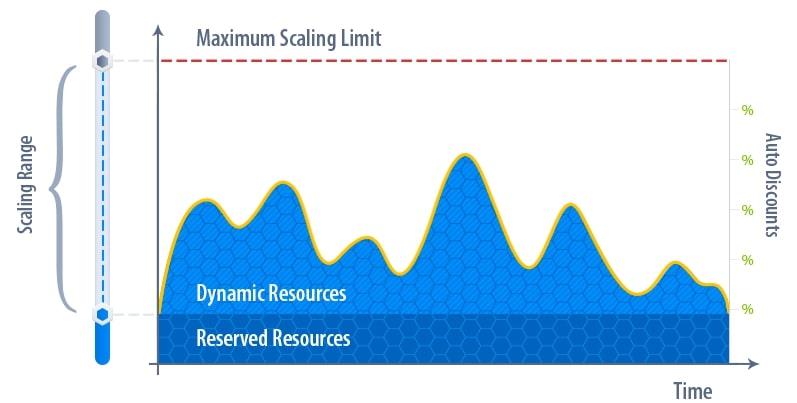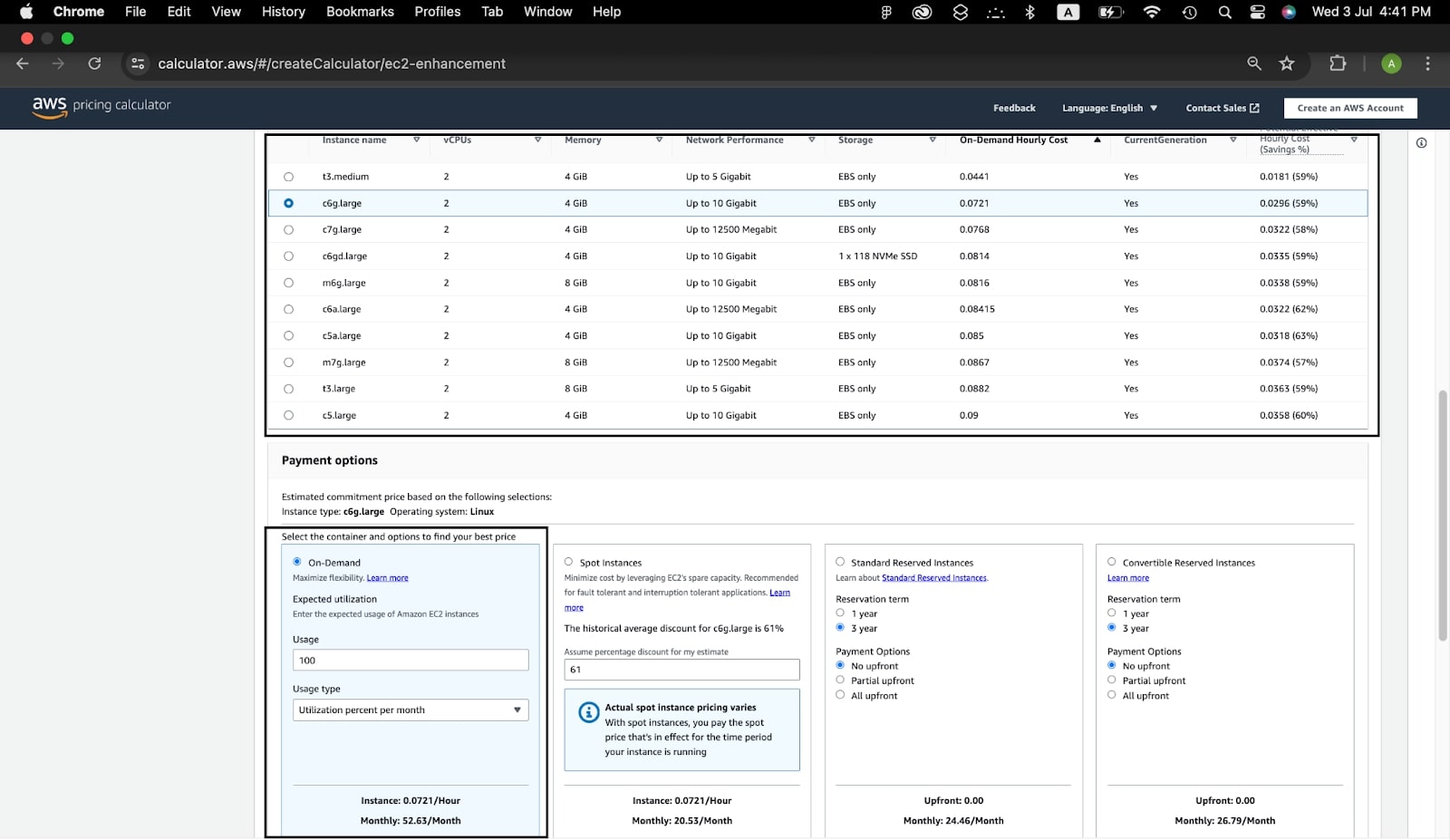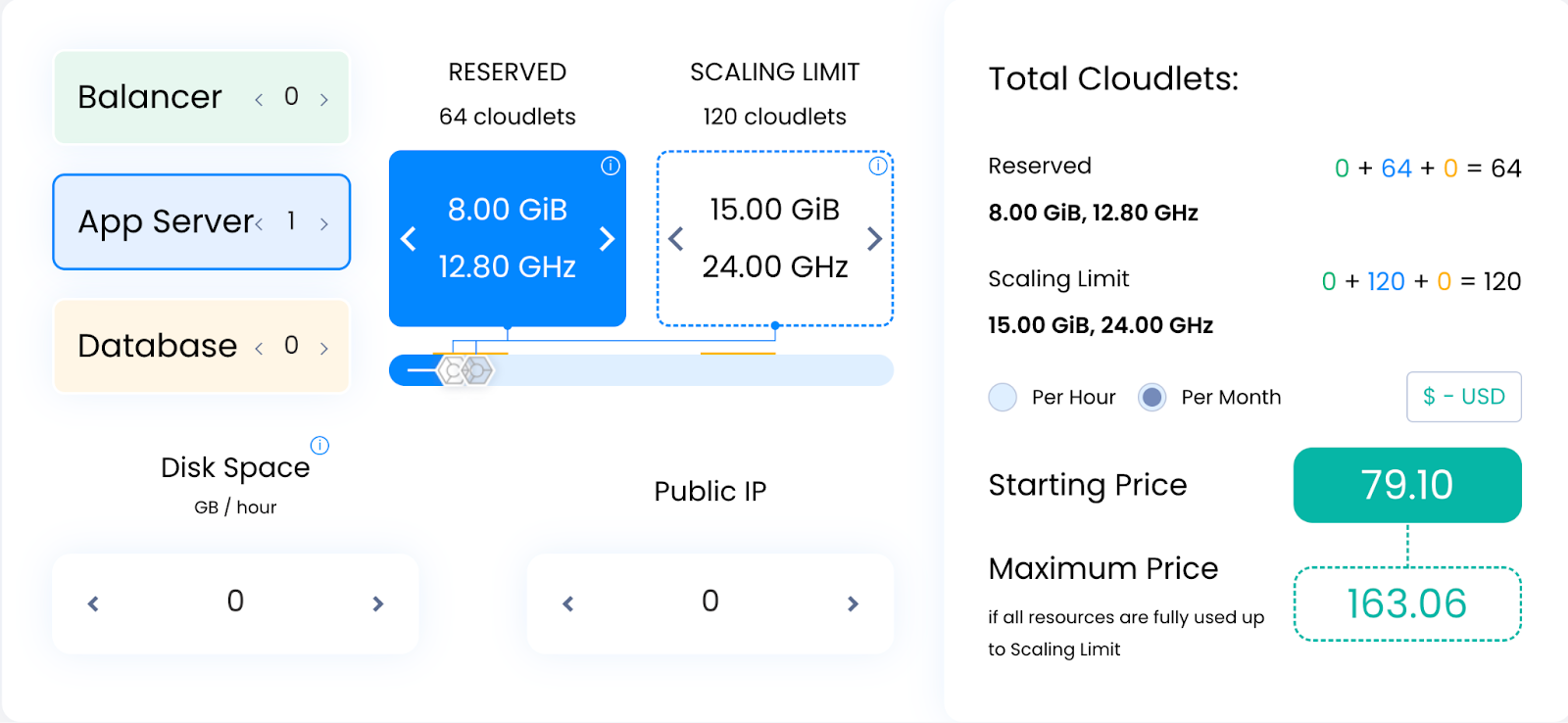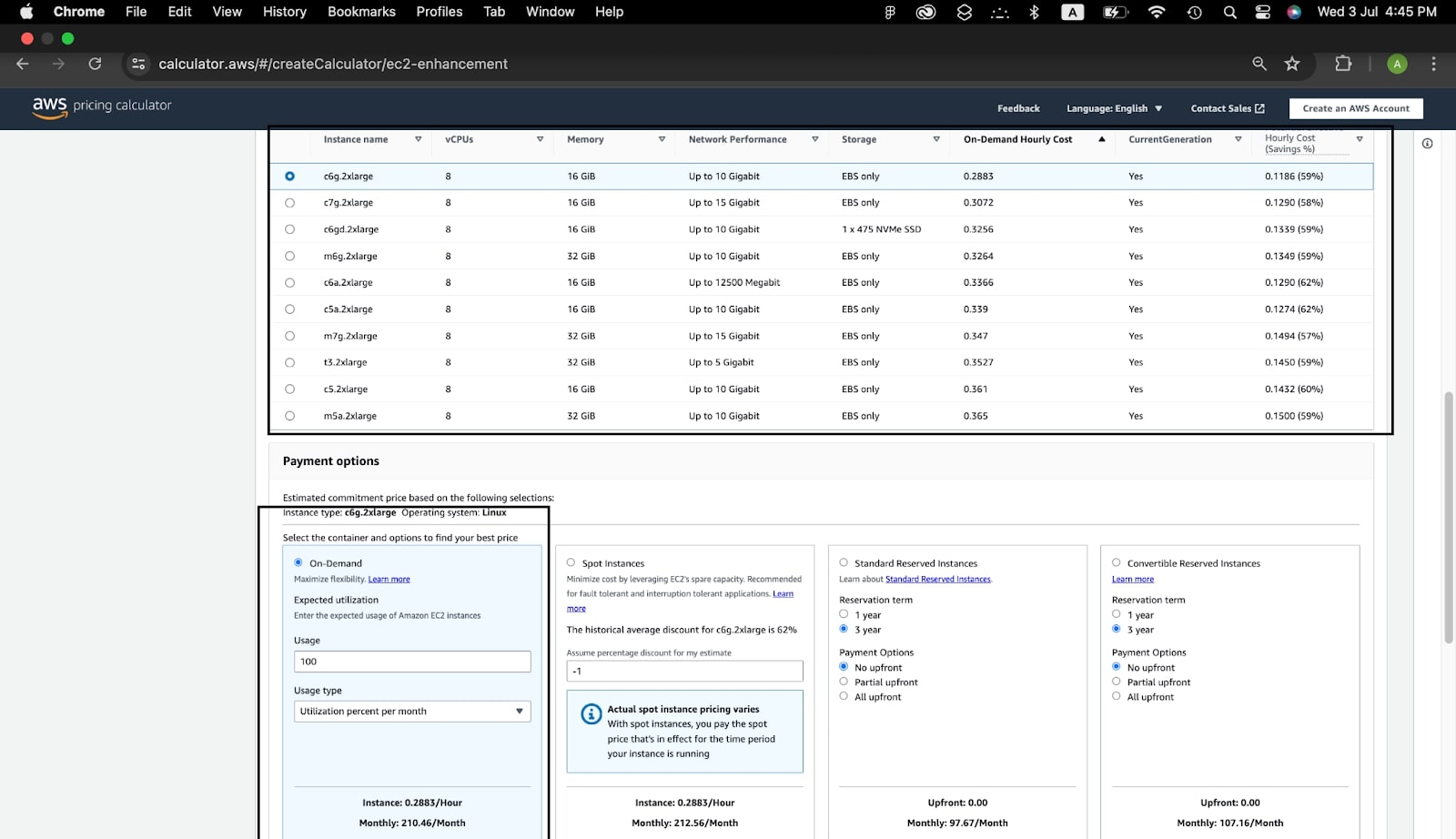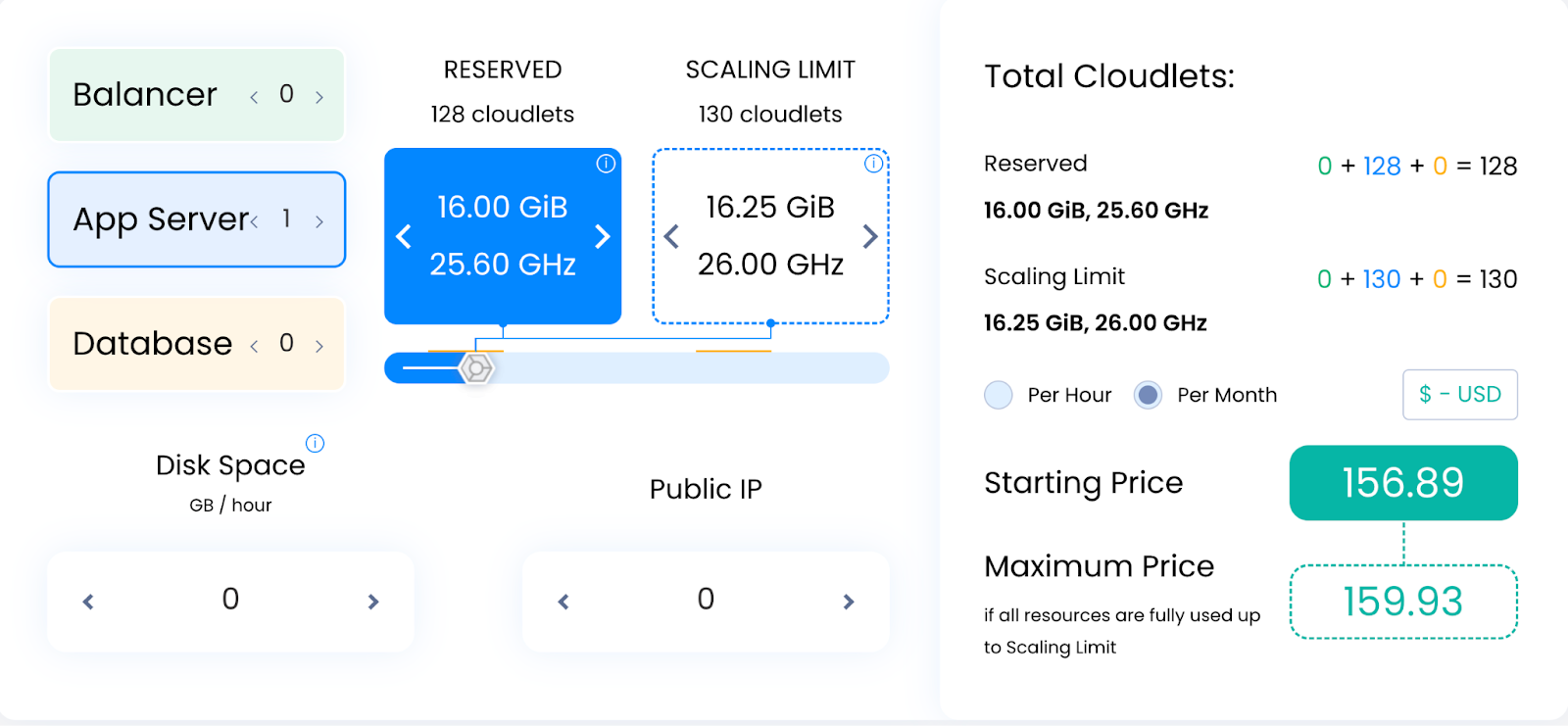AccuWeb.Cloud – Your Smart AWS EC2 Alternative
Amazon EC2 is one of the most well-known cloud computing services in the world, powering millions of businesses with scalable compute resources. It’s flexible, powerful, and backed by AWS’s massive infrastructure. However, its complexity and unpredictable costs often leave startups, developers, and even enterprises searching for a simpler, more cost-effective alternative.
That’s where AccuWeb.Cloud comes in as a modern, intelligent alternative to AWS EC2 that brings enterprise-grade performance, transparent pricing, and developer-friendly features without the headaches of hidden charges or steep learning curves.
Why Businesses Compare AWS EC2 with AccuWeb.Cloud
Both AccuWeb.Cloud and AWS EC2 give you:
- Full control over your instances – Configure, optimize, and scale your virtual machines exactly as you need.
- Choice of operating systems and stacks – Deploy Linux, Windows, or pre-configured environments.
- Scalability on demand – Increase or decrease resources as your workload changes.
But here’s where the key differences emerge: simplicity, pricing, and support.
Pricing Model Overview
The main idea of Amazon EC2 pricing is that you use a predefined amount of resources within the instances you add. To get slightly more resources, you must buy an instance twice as large, which results in paying double the cost. Even if your application consumes fewer resources than included in one Amazon instance, you still have to pay for the entire amount.
Moreover, if you want to resize your current instance without data migration, you must use EBS, which costs significantly more than non-EBS AMIs.
On the opposite end of the scale, AccuWeb.Cloud provides very granular resource allocation. You can change the size of instances without data migration and extra configurations, moreover, with AccuWeb.Cloud’s automatic vertical scaling, all unused resources are not charged at all.
Subsequently, you pay only for the actual resource consumption.
AccuWeb.Cloud always provides the lowest pricing model for your application load – automatically.
Automatic Scaling for Price Optimization
Both AccuWeb.Cloud and Amazon EC2 provide an excellent feature, enabling resource scaling for pricing optimization, and making it more user-friendly.
However, this functionality is implemented differently in our clouds, which also influences the scaling impact on the price. Amazon supports automatic horizontal scaling, while AccuWeb.Cloud provides both horizontal and vertical scaling.
Amazon EC2
When your application hosted on Amazon grows, you need to upgrade to a larger instance to get additional resources – you can’t simply scale them vertically. Instead of starting a new node and configuring it from scratch, you can try to resize the existing instance by moving it to more suitable hardware.
To achieve this, you must use EBS(Elastic Block Store), which brings more technical difficulties and expenses. Additionally, you will face some outages while moving, and your private and initial public IP addresses will change.
Migration from a small instance to a bigger one also requires a reload of the virtual machine, which can cause data loss.
For production applications, you will likely decide to use horizontal scaling. Amazon EC2 allows you to scale your capacity up or down automatically based on the conditions you define. You need to state how many instances to add if the resource consumption rises. Sometimes, you must reserve more than you need because you can’t predict the needs of your application with certainty.
AccuWeb.Cloud
In contrast, AccuWeb.Cloud provides automatic vertical scaling of CPU and RAM (cloudlet = 128MB RAM and 200MHz CPU). You simply decide the maximum limit you are ready to consume, and AccuWeb.Cloud automatically defines the optimal amount of resources required for your app.
With AccuWeb.Cloud, you get superior granularity while scaling. Unlike Amazon, AccuWeb.Cloud resource addition is performed automatically with small units (cloudlets). If you need to exceed the fixed scaling limits, this is done manually with no need to reload the virtual machine or move to another server (which is usually required with Amazon).
You can also reserve a specified amount of AccuWeb.Cloud resources if you are sure that your application will consume them. Such reserved resources are charged at a much lower price.
By using this method, you don’t overuse unnecessary resources, resulting in cost savings. Additionally, you can easily scale instances horizontally by adding additional servers. Horizontal scaling can be applied manually via the dashboard or automatically using AccuWeb.Cloud’s API.
Cloud Costing & Features Comparison
1. EC2 Instance Comparison
Price Comparison
To compare the pricing of EC2 instances with similar AccuWeb.Cloud products, we’ve used the following AWS EC2 instances:
- t3.medium for 2 vCPUs / 4 GiB RAM
- c6g.xlarge for 4 vCPUs / 8 GiB RAM
- c6a.2xlarge for 8 vCPUs / 16 GiB RAM
- c6g.4xlarge for 16 vCPUs / 32 GiB RAM
These instances were chosen as they closely match our AccuWeb.Cloud configurations in terms of computing power (vCPUs and RAM).
Detailed Cost Analysis: AccuWeb.Cloud vs AWS Cloud
Instance – 2 vCPUs / 4 GiB RAM (comparison with AWS c6g.large)
AWS c6g.large Pricing
-
- Hourly: US $0.0721/Hour
- Monthly: US $52.63/Month
AccuWeb.Cloud – 2 vCPUs / 4 GiB RAM instance price
- Hourly: US $0.054624 / Hour
- Monthly: US $43.93 / Month
Instance – 4 vCPUs / 8 GiB RAM (comparison with AWS c6g.xlarge)
AWS c6g.xlarge
- Hourly: US $0.1442
- Monthly: US $107.78
AccuWeb.Cloud – 4 vCPUs / 8 GiB RAM instance price
- Hourly: $0.108
- Monthly: $79.1
Instance – 8 vCPUs / 16 GiB RAM (comparison with AWS c6a.2xlarge)
AWS c6a.2xlarge
- Hourly: $0.3366
- Monthly: $251.45
AccuWeb.Cloud – 8 vCPUs / 16 GiB RAM instance price
- Hourly: $0.215
- Monthly: $156.9
Instance – 16 vCPUs / 32 GiB RAM (comparison with AWS c6g.4xlarge)
AWS c6g.4xlarge
- Hourly: $0.5766
- Monthly: $420.87
 AccuWeb.Cloud – 16 vCPUs / 32 GiB RAM instance price
AccuWeb.Cloud – 16 vCPUs / 32 GiB RAM instance price
- Hourly: $0.426
- Monthly: $311.2
*The savings discussed in this context are calculated using the complete utilization of resources. Typically, individuals use around 60 to 70% of the available resources, significantly boosting savings to nearly 40%.
2. Storage Pricing Comparison
In addition to computing resources, storage costs are a significant factor in cloud expenses. Here’s how AccuWeb.Cloud compares to AWS in storage pricing:
50GB Storage
- AWS: $7.52/month
- AccuWeb.Cloud: $5.32/month
100GB Storage
- AWS: $15.03/month
- AccuWeb.Cloud: $8.56/month
150GB Storage
- AWS: $22.53/month
- AccuWeb.Cloud: $11.34/month
200GB Storage
- AWS: $30.03/month
- AccuWeb.Cloud: $15.40/month
3. Data Transfer Pricing
Pricing Overview
To compare the pricing of data transfer services, we’ve considered similar tiers from both AWS and AccuWeb.Cloud. Here are the per GB pricing comparisons based on monthly data transfer volumes:
200GB Data Transfer
- AWS: $0.09 per GB
- AccuWeb.Cloud: $0.05325 per GB
1TB Data Transfer
- AWS: $0.09 per GB
- AccuWeb.Cloud: $0.04571 per GB
5TB Data Transfer
- AWS: $0.09 per GB
- AccuWeb.Cloud: $0.02999 per GB
4. Feature Overview
AccuWeb.Cloud
- User-Friendly Platform: Tailored for effortless cloud deployment, scaling, and monitoring.
- Managed Cloud Instances: Fully managed instances with support for flexible deployment via Archive/URL, GIT/SVN, and IDE plugins.
- DevOps Integration: Integrated tools for CI/CD, advanced cluster customization options, and ready-to-use solutions like Kubernetes and MySQL clusters.
- Pricing Model: Straightforward pay-as-you-go pricing with options for both hourly and monthly billing.
- Reliability and Security: Offers a robust 99.99% uptime guarantee, and prioritizes security with features such as Container Firewall and Network Isolation.
AWS (Amazon Web Services)
- Extensive Service Offering: Broad range of services including computing (Amazon EC2), storage (Amazon S3, Amazon EFS), and advanced NoSQL databases like DynamoDB.
- Scalability: High scalability with services such as Amazon ECS for container orchestration, supported by advanced DevOps capabilities through AWS CodePipeline.
- Global Infrastructure: Extensive global reach and infrastructure supporting a rich service catalog.
- Complexity: Requires a deeper technical understanding and more complex deployment processes compared to AccuWeb.Cloud.
- Customization: Suitable for enterprises and developers needing extensive customization and global deployment capabilities.
In summary, AccuWeb.Cloud focuses on simplicity, integrated solutions, and strong support for modern development practices, making it ideal for users prioritizing ease of use and security.
AWS offers unparalleled scalability, a vast array of services, and global infrastructure, but requires more technical expertise and management complexity for optimal utilization.
5. Key Benefits
- Substantial Compute Savings: Up to 64.76% cost reduction on compute resources, varying by instance type
- Competitive Storage Pricing: More affordable for lower storage tiers
- Consistent Performance: Equivalent or better performance compared to AWS instances
- Flexible Pricing: Both hourly and monthly billing options for optimized budgeting
- Scalable Solutions: Suitable for businesses of all sizes
Conclusion
AccuWeb.Cloud provides a cost-effective alternative to AWS, enabling businesses to significantly reduce their cloud expenses while maintaining high-performance standards.
With compute savings ranging from 25% to over 64% depending on the instance type, and competitive storage pricing for lower tiers, AccuWeb.Cloud is a smart choice for companies looking to optimize their IT budgets without sacrificing quality.
For a detailed comparison and to calculate your potential savings, visit:
Make the switch to AccuWeb.Cloud today and start maximizing your cloud investment.
People Also Ask (And You Should Too!)
1. What makes AccuWeb.Cloud a good alternative to AWS EC2?
AccuWeb.Cloud offers the same flexibility and control as AWS EC2 but with a simpler pricing model, faster setup, and more personalized customer support. It’s designed for businesses that want cloud power without the complexity and unpredictable bills of AWS.
2. Is AccuWeb.Cloud cheaper than AWS EC2?
Yes. AccuWeb.Cloud provides transparent and predictable pricing, unlike AWS EC2 where costs can rise quickly due to hidden charges such as data transfer, storage, or support. This makes AccuWeb.Cloud more cost-effective for startups, developers, and growing businesses.
3. Does AccuWeb.Cloud provide the same scalability as AWS EC2?
Absolutely. AccuWeb.Cloud allows you to scale up or down instantly with flexible compute resources. You get the freedom to match your infrastructure needs as your business grows—without overpaying for unused capacity.
4. Can I run the same applications on AccuWeb.Cloud as I do on AWS EC2?
Yes. AccuWeb.Cloud supports popular software stacks, frameworks, and operating systems. Whether you’re hosting web apps, databases, or development environments, you’ll find compatibility similar to AWS EC2.
5. What kind of support does AccuWeb.Cloud offer compared to AWS EC2?
Unlike AWS EC2’s tiered and often costly support plans, AccuWeb.Cloud provides personalized, human-first support included with every plan. Our experts are available to guide you through setup, migration, and scaling—without extra charges.
6. Is migration from AWS EC2 to AccuWeb.Cloud complicated?
No. AccuWeb.Cloud offers guided migration assistance to help you smoothly move workloads from AWS EC2. You’ll get hands-on support to ensure zero downtime and minimal disruption.
7. Who should choose AccuWeb.Cloud over AWS EC2?
AccuWeb.Cloud is ideal for startups, SMBs, and developers who need reliable cloud performance with transparent pricing and 24/7 support. If AWS feels too complex or expensive, AccuWeb.Cloud is the smart alternative.

Jilesh Patadiya, the visionary Founder and Chief Technology Officer (CTO) behind AccuWeb.Cloud. Founder & CTO at AccuWebHosting.com. He shares his web hosting insights on the AccuWeb.Cloud blog. He mostly writes on the latest web hosting trends, WordPress, storage technologies, and Windows and Linux hosting platforms.



